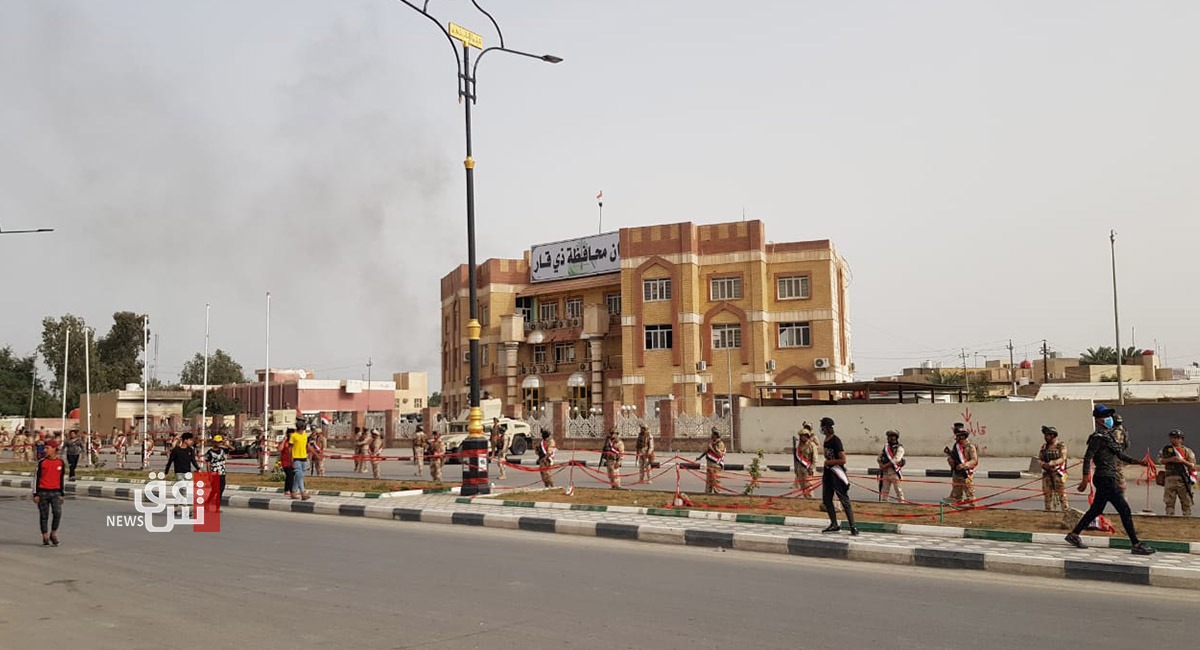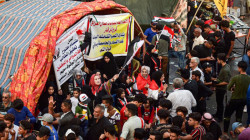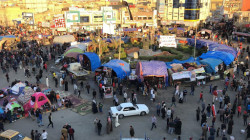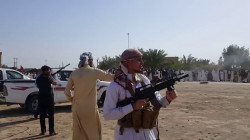Emerging sectarian movements: the alarming rise of suicide rituals and their broader implications

Shafaq News / The emergence of unconventional religious sects, deemed "deviant" by the societal norms, has provoked considerable consternation amongst the inhabitants of Dhi Qar Governorate, a region rich in historic civilizations. One such sect appears to view suicide as a hallowed rite that adherents are expected to perpetually partake in. The most recent instance of such a sect in this governorate is the "Qurban group," alternatively known as "al-Alahiya."
A high-ranking security official disclosed to Shafaq News Agency that the Qurban group surfaced approximately three years ago, an offshoot of the larger al-Silukiya sect, which can be subdivided into two factions. The primary faction permits the swapping of spouses amongst its members, leading to the arrest of four families affiliated with this sect within the Islah district by security forces. The secondary faction, known as Qurban or al-Alahiya, an acronym for "Ali Allahiya", has garnered the support of numerous young individuals who hold a belief in the divinity of Ali bin Abi Talib, a notable figure in Islam, particularly amongst the Shiite Muslims. The ideology of this sect is primarily grounded in the execution of self-sacrificial rites during religious observances.
According to this source, the method of determining who performs the sacrificial act within this group is through a random draw, the selected individual then committing suicide during one of the group's Husseini processions. The source also noted that the majority of the sect's adherents are below twenty years of age, and most have only achieved an elementary education or lower.
The source further added that the group's ideological basis was formulated during their numerous visits to the Islamic Republic of Iran over the previous years. These visits primarily consisted of a pilgrimage on foot to the shrine of Imam Ali bin Musa al-Ridha, passing through numerous Iranian cities on a journey that lasted approximately fifty days before reaching the sacred shrine in Mashhad. Numerous well-known Husseini processions in Dhi Qar have begun to espouse the ideologies of this group. Concurrently, the security forces suspect that the group's advocates are armed and ready to defend their ideologies.
As a consequence of the group's alleged armed activities, three security organizations — the intelligence service, al-Hashed al-Shaabi (Popular Mobilization Forces-P.M.F.), and the Counter-Terrorism Service — have commenced monitoring the activities of this group.
Social researcher Rashid al-Sarray informed Shafaq News Agency that his analysis suggests the Qurban group's genesis can be traced back to the actions of the Shur sect, which came to prominence in the district of Souq al-Shuyoukh, located in southern Dhi Qar, several years ago.
As per al-Sarray, the Shur sect is known for its controversial arrangement of Husseini poems. These poems provoke substantial controversy due to the egregious doctrinal infringements they embody, attributing beliefs to imams and their descendants that are both unspoken and unaccepted within the Shiite sect, a form of excess considered forbidden by Sharia law.
Despite a prominent poet from the sect publicly expressing his repentance, the influence on the youth remains pervasive and has been further fueled by certain groups both domestically and abroad. In response, al-Sarray noted, there had been requests for these individuals to be held accountable in an effort to curb the escalating situation, accompanied by warnings against the growing issue.
The situation has recently re-emerged with amplified assertions by the Qurban group, overtly attributing divinity to Imam Ali, leading to the arrest of numerous followers, as al-Sarray further elaborated.
He mentioned, "According to certain sources, the group garners support from a foreign entity, particularly in the Iranian city of Mashhad. However, the authenticity of this information has yet to be confirmed. It's important to note that this situation is not exclusive to this group. Assuming the information is accurate, it's almost certain that similar groups exist in other governorates."
Dismissing the idea that self-sacrifice is a core tenet of this group, al-Sarray clarified that security investigations haven't substantiated this claim yet. "However, the group's chosen moniker, 'the offering,' and the incidence of suicides within its ranks may have contributed to the perpetuation of this inferred notion, especially given that the majority of entities likely to support them do not endorse or propagate the concept of offerings and sacrifices."
Besides the economic climate and the allure of becoming part of a covert group with cryptic beliefs, al-Sarray expanded on the multiple factors leading to the emergence of such groups. These include exploitation of youthful enthusiasm and naivety to propagate unconventional and appealing ideas, particularly within the realm of the Shur, known for its high levels of fervor.
Emphasizing the need for dual strategies to address these groups, he added, "Solutions should be security-oriented and intellectual, engaging these young individuals in discourse to deter them from their misguided beliefs."
He didn't exclude the possibility of these groups evolving into armed factions with objectives akin to those of Jund al-Samaa' (the Soldiers of Heaven) group.
"The emergence of such movements is criminalized by the Iraqi constitution, Penal Code, and specific laws," legal expert Muhammad Ali conveyed to Shafaq News Agency, highlighting that "the criminal penalties imposed on them could extend to life imprisonment or even death."
He further clarified, "Article VII of the Iraqi constitution prohibits any entity or ideology that endorses racism, terrorism, or ethnic cleansing, or that glorifies and justifies these practices. Therefore, this provision is applicable to the al-Alahiya group."
As for the existing penal laws, he added, "the current situation of the group falls under Article 372 of the amended Iraqi Penal Code No. 111 of 1969, which stipulates a penalty of imprisonment not exceeding three years or a fine."
However, Ali criticized the penalties as inadequate due to their leniency. "A legislative amendment increasing the severity of the penalty and expanding its scope would have been preferable."
Ali pointed out that "the penalty could escalate to life imprisonment or death if these groups resort to armed violence against government security services. Such instances are considered terrorist crimes under the law, and the offenders could be prosecuted according to the provisions of Anti-Terrorism Law No. 13 of 2005."





